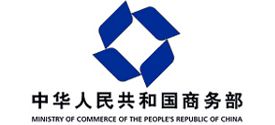知识产权法律法规
IPR Laws and Regulations of China
从20世纪80年代起,我国针对专利权、著作权、商标权、地理标志及商业秘密专有权等的保护相继颁布了多项知识产权法律法规,知识产权制度迅速发展,目前已与国际接轨。我国在制订国内知识产权法律法规的同时,也加强了与世界各国在该领域的交往与合作,并加入了十多项相关的国际公约。
China has introduced a variety of IPR laws and regulations covering patent, copyright, trademark, trade secret, geographical indication since 1980s. The IPR system of China has achieved fast development, fully keeping in line with international practices. In addition to promulgation of such IPR laws and regulations, China has been strengthening IPR communication and cooperation with other countries and acceded to more than 10 international conventions concerned.
专利权的保护
Patent protection

在我国专利类型有三种:发明专利、实用新型专利和外观设计专利,三者受同等保护。我国遵循先申请原则,两个或者两个以上的申请人分别就同样的发明创造申请专利的,专利权授给最先申请的人。 我国是《专利合作条约》(PCT)成员方,外国申请人可以通过PCT途径向我国递交专利申请。目前,我国由国家知识产权局对专利进行审查、注册和管理。
There are three kinds of patents in China with equal protection, that is, invention patent, utility and industrial design. China follow the first-to-file principle. When two or more patent applications are filed for an identical invention, only the applicant who filed the patent application first will be entitled to obtain a patent for that invention. As China is a member of Patent Cooperation Treaty (PCT), foreign applicants can file patent applications under PCT. The State Intellectual Property Office of China (SIPO) is responsible for patent examination, registration and administration.
专利权保护法律法规
Patent laws and regulations
| 1. |
《中华人民共和国专利法》 Patent Law of the P. R. China |
| 2. |
《中华人民共和国专利法实施细则》 Rules for the Implementation of the Patent Law of the P. R. China |
| 3. |
《专利代理条例》 Regulations on Patent Commissioning |
| 4. |
《专利审查指南》 Guidelines for Patent Examination |
著作权的保护
Copyright protection

我国《著作权法》规定,著作权包括人身权和财产权,自作品创作完成之日起自动产生。
著作权所有人可以向有关管理单位登记作品著作权,但登记不是取得著作权的前提条件。国家版权局负责著作权的行政管理,负责贯彻实施著作权法律、法规,批准设立著作权集体管理机构、涉外代理机构等。
According to the Copyright Law of China, copyright includes personal rights and property rights and originates as of the date when the creation of a work is completed.
Copyright holders can register copyright with relevant administration unit, but registration is not prerequisite to acquisition of the right.
The National Copyright Administration of China (NCAC) is responsible for copyright administration, enforcement of copyright laws and regulation and approval of establishment of copyright collective management organizations and foreign related agencies.
著作权保护的法律法规
Copyright laws and regulations
| 1. |
《中华人民共和国著作权法》 Copyright Law of the P. R. China |
| 2. |
《中华人民共和国著作权法实施条例》 Regulations for the Implementation of Copyright Law of the P. R. China |
| 3. |
《著作权集体管理条例》 Regulations on Copyright Collective Administration |
| 4. |
《实施国际著作权条约的规定》 International Copyright Treaties Implementing Rules |
| 5. |
《计算机软件著作权登记办法》 Measures for Registration of Computer Software Copyright |
| 6. |
《互联网著作权行政保护办法》 Measures for the Administrative Protection of Internet Copyright |
| 7. |
《电影管理条例》 Regulations on the Administration of Movies |
商标权的保护
Trademark protection

我国《商标法》规定注册保护原则,是指商标专用权通过注册取得,不管该商标是否使用,只要符合商标法的规定,经商标主管机关核准注册之后,申请人即取得该商标的专用权,受到法律的保护。除注册保护原则外,《商标法》的另一重要原则是申请在先原则,简单来说就是先申请商标的申请人可能会获得注册批准,取得商标权。我国由国家工商总局商标局负责商标注册、审核和管理。
The Trademark Law of China provides for the principle of trademark registration and protection. Trademark is obtained through registration. Regardless of use or not, the exclusive right to use the trademark shall be granted, provided that it is in line with provisions of the Trademark Law and approved for registration by trademark authority. In addition, the Trademark Law also follows first-to-file principle. Simply put, only the applicant who filed the application first will be entitled to obtain a trademark. The Trademark Office of the State Administration for Industry & Commerce (SAIC) is responsible for trademark registration, examination and administration.
商标权保护的法律法规
Trademark laws and regulations
| 1. |
《中华人民共和国商标法》 Trademark Law of the P. R. China |
| 2. |
《中华人民共和国商标法实施条例》 Regulations for the Implementation of the Trademark Law of the P. R. China |
| 3. |
《关于对外贸易中商标管理的规定》 Provisions on the Management of Trademarks in Foreign Trade |
| 4. |
《特殊标志管理条例》 Regulations on the Administration of Special Signs |
| 5. |
《奥林匹克标志保护条例》 Regulations on the Protection of Olympic Symbols |
地理标志专用权的保护
Geographical indication protection

我国《地理标志产品保护规定》定义的地理标志产品是:指产自特定地域,所具有的质量、声誉或其他特性本质上取决于该产地的自然因素和人文因素,经审核批准以地理名称进行命名的产品。我国共有三个部门对地理标志进行注册、登记和管理。国家工商总局商标局通过集体商标或证明商标的形式进行法律注册和管理,国家质检总局和国家农业部以登记的形式对地理标志进行保护和管理。
According to the Provisions of Protection of Products of Geographical Indication, GI products refer to the ones approved to take the geographical name and originating in a special locality where the given quality, reputation or other characteristics of the product is essentially attributable to the natural and human factors of the geographical origin. Three departments of China are responsible for the GI registration and administration. In particular, the Trademark Office of SAIC is in charge of the registration and administration of collective trademarks or certificated trademarks, and the General Administration of Quality Supervision, Inspection and Quarantine (AQSIQ) and the Ministry of Agriculture are responsible for GI protection and administration in the form of registration.
地理标志专用权保护的法律法规
Geographical indication laws and regulations
| 1. |
《地理标志产品保护规定》 Provisions for the Protection of Products of Geographical Indication |
| 2. |
《农产品地理标志管理办法》 Measures for the Administration of Geographical Indications of Agricultural Products |
| 3. |
《地理标志产品专用标志管理办法》 Measures for the Administration of Special Signs of Geographical Indication Products |
商业秘密权的保护
Trade secret protection

我国对商业秘密的保护主要规定在《反不正当竞争法》第10条中:“以盗窃、利诱、胁迫或者其他不正当手段获取权利人的商业秘密,披露、使用或者允许他人使用以前项手段获取的权利人的商业秘密,违反约定或者违反权利人有关保守商业秘密的要求,披露或者允许他人使用其所掌握的商业秘密,视为侵犯商业秘密。”我国对商业秘密的保护与世界大多数国家的保护基本相同,认定商业秘密和判断是否构成侵权的标准也基本一致。
Article 10 of Law Against Unfair Competition of China concerning trade secret protection provides that “A business operator shall not use any of the following means to infringe upon trade secrets: (1) obtaining an obligee's trade secrets by stealing, luring, intimidation or any other unfair means; (2) disclosing, using or allowing another person to use the trade secrets obtained from the obligee by the means mentioned in the preceding paragraph; or (3) in violation of the agreement or against the obligee's demand for keeping trade secrets, disclosing, using or allowing another person to use the trade secrets he possesses.” The GI protection provided by China is basically equal to that of most other countries in the world, so is the standards for determination of trade secrets and its infringement.
商业秘密权保护法律法规
Trade secret laws and regulations
| 1. |
《中华人民共和国反不正当竞争法》 Law of the P. R. China Against Unfair Competition |
| 2. |
《关于禁止仿冒知名商品特有的名称、包装、装潢的不正当竞争行为的若干规定》 Certain Regulations on Prohibiting Unfair Competition activity concerning imitating specific Names, Packaging or Decoration of Well-known Commodities |









